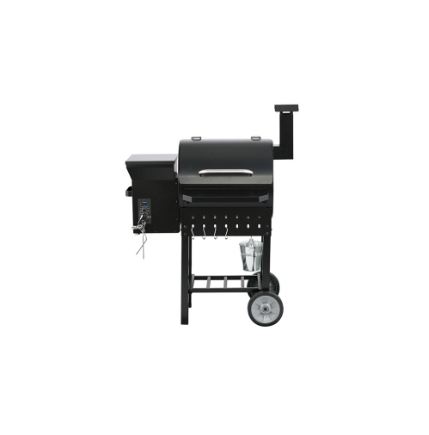
The BBQ Grill industry, like many other sectors, is subjected to several regulatory requirements that impact product design, manufacturing, marketing and sales. In order for manufacturers and retailers to remain compliant, avoid legal problems and maintain consumer confidence it is important for them to understand these regulations.

Safety Standards Gas grills are hazardous in the BBQ Grill industry due to gas explosions. For example; the US Consumer Product Safety Commission (CPSC) sets very strict standards of safety for bbq grills. These cover various things such as stability, ignition systems, gas connections and electrical components. They must conform to these safety standards and before their products enter into market they have to go through vigorous test and certification process.
Environmental Regulations An important point of focus regarding emissions from gases produced in barbeque grills by environmental regulations has been on the barbeque grill industry. The Environmental Protection Agency (EPA) in the U.S., for instance, has created guidelines aimed at limiting emissions from Charcoal and Gas Grills. Such guidelines aim at reducing air pollution hence promoting use of cleaner technologies. Energy consuming products including barbeque grills in Europe are required by the Eco-design Directive to become more energy efficient with a lower environmental impact.
Material and Chemical Restrictions
Barbecues also require regulation of the materials used as well as chemicals utilized during manufacture.There is a directive known as RoHS – Restriction of Hazardous Substances – which puts restrictions on specific hazardous materials used in electrical/electronic equipment within European Union countries.So when there are any electronic parts to be used on barbecue grills they need to meet this condition similarily rules governing use of lead or cadmium or other toxic substances in coatings applied on top ensure that subsequently these appliances are appropriate for consumers’ health.
Labeling and Marketing Requirements
Another set of critical regulations pertains transparency requirements in labeling and marketing. BBq grills are required by regulations to be labeled clearly and accurately so that consumers can know about their use, safety and maintenance. In the United States, for instance, the Federal Trade Commission (FTC) enforces truth-in-advertising laws that prohibit deceptive claims about a product’s performance, safety or environmental benefits. This ensures that customers trust the products and avoid any legal consequences that may come later.
Import and Export Compliance
For companies engaged in global trade, adherence to import and export rules is crucial.This includes meeting the specific standards and certifications required by different countries. For example, BBQ grills imported into the European Union must carry the CE mark which shows compliance with EU health, safety and environmental protection requirements. These complex rules need a comprehensive understanding of international regulatory landscapes as well as strict adherence to different national norms.
Conclusion
The regulatory requirements impacting the BBQ grill industry are multifaceted, encompassing safety, environmental protection, material use, labeling, and international trade. Not only is it legally mandatory but also vital for consumer loyalty and fostering sustainable development.Companies must stay ahead of these changing regulatory landscapes to ensure their products meet all current applicable regulations; thereby promoting responsible growth and innovation within the industry.